With three weeks to go, the race for Memphis mayor is still a coin-toss affair. By most reckonings, incumbent Mayor A C Wharton and City Councilman Jim Strickland are running virtually neck and neck.
That circumstance was confirmed by a recent Mason-Dixon poll, published in The Commercial Appeal, which had Wharton at 30 percent and Strickland at 25 percent, with City Councilman Harold Collins and Memphis Police Association President Mike Williams at 12 percent each. Arguments promptly raged as to the nature of the sampling, but the general picture seemed clear enough. And so were candidates’ responses.

Strickland’s support among white voters and along the Poplar Corridor in general was obvious and unlikely to diminish much, if at all, by election day. If anything, came the word from his camp, his standing in the poll was low-balled. Strickland, who has certainly not forsworn the black vote but was lagging there, accelerated his appearances at African-American churches and other predominantly black venues to augment his prospects.
Wharton was maintaining a plurality among black voters, who constitute almost two-thirds of the eligible electorate, and was in the low double-digits among whites. The mayor kept pitching to his strength and was emphasizing support from fellow office-holders and established sources, including The Commercial Appeal, which gave him its endorsement.
Collins and Williams, meanwhile, maintained they were within striking distance and were working hard to present themselves as the change agents of choice in an environment in which voter discontent was obvious, both anecdotally and as measured in the polls.
The four principal mayoral candidates will participate next Tuesday at noon at the University Club in what could be the climactic mayoral forum in what has been a series of them this year. The forum is sponsored under the joint auspices of the Rotary Club of Memphis and the Flyer.
• Politics is politics, and education is education, but all too often, especially in Memphis and Shelby County in recent times, the two have merged.
Everybody in Shelby County surely got their fill of education politics per se during the the city/county school merger controversy that raged from December 2010 to August 2014, when the six suburban municipalities of Shelby County got their independent school districts up and running, more or less.
But what’s this? Here, in its entirety, is an item reported in the current issue of the Nashville-based Tennessee Journal:
“The Memphis-Shelby County Education Association claimed through its attorney Wednesday to have seceded from the Tennessee Education Association and the National Education Association. Relations had been tense since Keith Williams, a former M-SCEA president whose term ended in July, was hired last month as the new executive director.
“Ken Foster, the director for 15 years, was ousted. TEA has notified teachers it has set up a new ‘TEA West’ office to serve them, and that despite actions of M-SCEA leaders, they are still members of TEA and NEA. According to a TEA email, TEA West was established ‘after M-SCEA leadership refused to allow NEA officials to conduct an audit, broke the agreement of the Memphis-Shelby County [schools] merger, forced out the long-serving executive director, and now has claimed to disaffiliate from TEA-NEA.'”
For the record, the Keith Williams mentioned here is the same Keith Williams who is considered one of the main contenders in the race for the District 3 City Council seat being vacated by Harold Collins, now a candidate for mayor.
Williams’ pugnacity as an opponent of the charter surrender that was voted on by a majority of the old Memphis City Schools board on December 20, 2010, was rivaled only by that of then board member Kenneth Whalum Jr., now a candidate for the Super District 9, Position 2 seat.
As previously indicated in this space, Whalum is running as the unofficial head of a like-minded “education slate,” and, unsurprisingly perhaps, Williams is one of the six members of that slate he has endorsed.
By all accounts, the other major candidate for the District 3 seat is Patrice Robinson, who served alongside Whalum on the old MCS board and was a member of the majority which cast the fateful vote to surrender the MCS charter.
Robinson — who has been running hard in the current District 3 race, holding one meet-and-greet affair per week — previously tangled in the race for the District 9 Shelby County Commission seat now held by Justin Ford, who was able to eke out a win in that winner-take-all race.
Unlike that race, this one for city council is subject to a run-off if no one candidate is able to win a majority, and, inasmuch as the field includes five other candidates — some with name recognition from previous races of their own — it is not impossible that this latest showdown between Williams and Robinson will have another chapter beyond October 8th.
The other active contenders for the District 3 seat are Tanya Cooper, also an educator and the daughter of state Representative Barbara Cooper; Kevin Mott; Sherman Kilimanjaro; and Coleman Thompson. Rhonda Banks is listed on the ballot as a candidate, but she has suspended her race and is now supporting Robinson. • Runoffs, if they should be called for in the District 3 race or in any of the other six district races, will not be held on November 8th, as originally scheduled and announced as a runoff date, but on November 19th. This is according to a new clarification by the Shelby County Election Commission of state election law, which calls for runoffs to occur no sooner than 30 days from the posted election day and no longer than 45 days.
The clarification happens incidentally to avoid the awkwardness of holding an election on a date, November 8, which falls on a Sunday.
• Meanwhile, one de facto “runoff” election has already been held — that for the chairmanship of the Shelby County Commission. The commission’s original vote for chairman was held a month ago — on August 10th, when East Memphis Republican member Steve Basar won the election by a single vote.
Then, in a bizarre turnabout, one hour after the election, Memphis Democrat Eddie Jones, who had abstained for most of the ballot rounds that day before casting what had turned out to be the decisive vote for Basar, unexpectedly asked for a reconsideration — i.e., a revote on the matter.
Parliamentary protocol allows for such a reconsideration if the person seeking it was a member of the prevailing side on the original vote, and Jones, who had in the meantime had several sotto voce conversations with another chairmanship contender, Millington Republican Terry Roland, qualified.
After a vote which narrowly approved reconsideration, another vote was held, in which — thanks largely to a spoiler candidacy by Collierville Republican George Chism — neither the now un-elected Basar nor Roland could prevail, and a new election was called for this week, to accommodate Jones, who said he would be unable to attend the intervening commission meeting on August 14th.
Come Monday, and the new election was the first order of business after the commission’s approval of a consent agenda. With interim chair Van Turner presiding (outgoing chair Ford’s term having formally terminated), new nominations for chairman were called for, and the same three candidates as before — Basar, Roland, and Chism — were put in nomination.
Tellingly, Roland was nominated this time by Jones. In the end, after two ballots, Roland won election on the basis of five Republican votes, including his own, and those of two Democrats, Jones and Ford.
As a preamble to Monday’s rescheduled chairmanship election, several citizens, representing Democratic, Republican, and perhaps independent constituencies, had appeared before the commission, challenging its members to cast their votes on some basis other than deal-making.
Whatever degree of public cynicism that may have represented, victor Roland, whose election was a springboard of sorts for the county mayor’s race he intends to run in 2018, sought to be reassuring. Before the vote, he promised “from my heart” that, if elected, he would “break my neck” on behalf of his colleagues of all persuasions. After the vote, he professed to be humbled.
Basar — who, besides his two recent setbacks, had suffered an unanticipated loss to Ford in last year’s chairmanship vote — was sounding philosophical even before Monday’s vote was taken. “Déjà vu all over again,” he said.
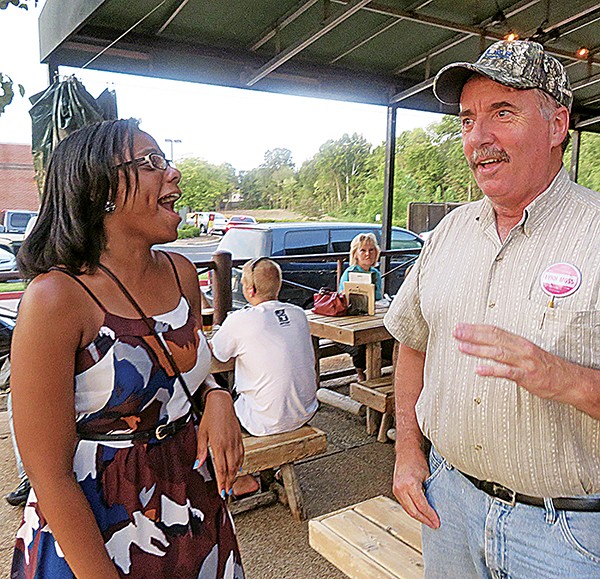 Jackson Baker
Jackson Baker 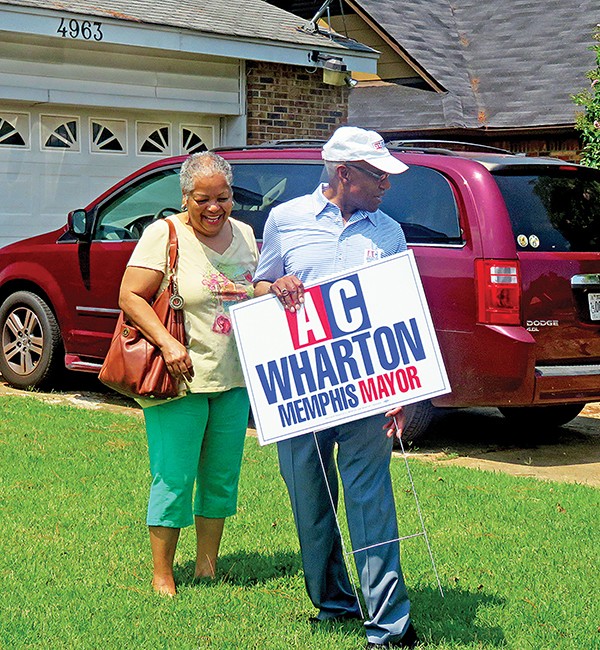 Jackson Baker
Jackson Baker 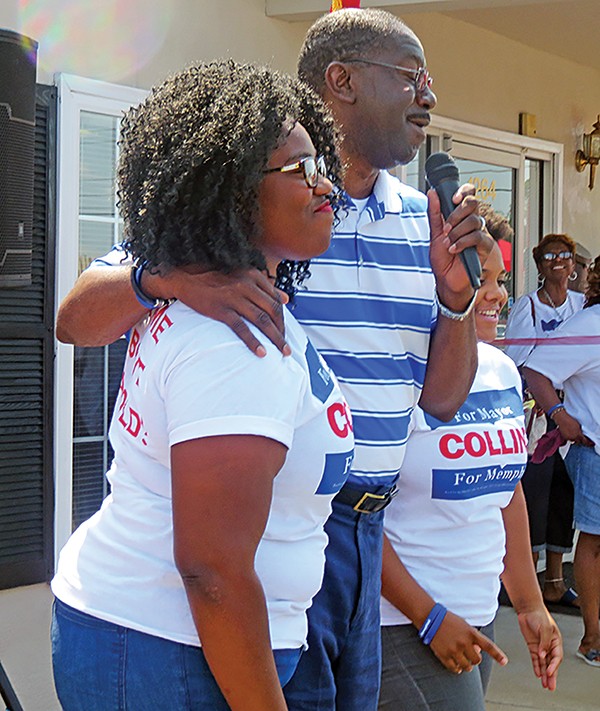 Jackson Baker
Jackson Baker 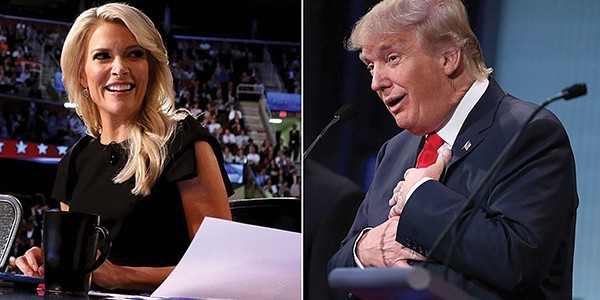
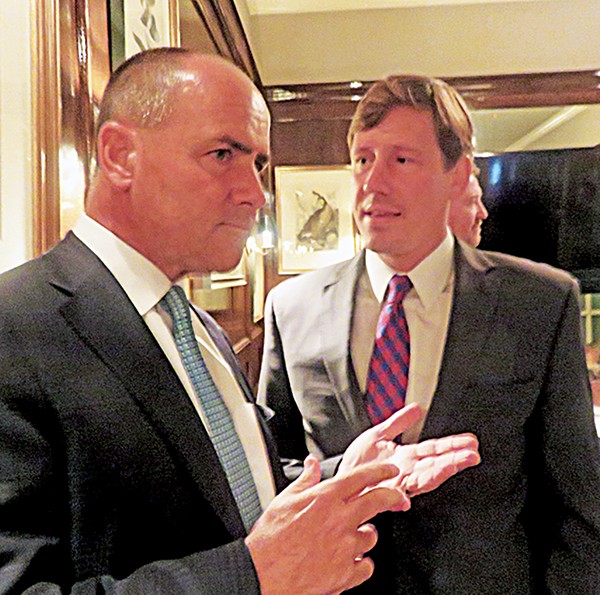 Jackson Baker
Jackson Baker 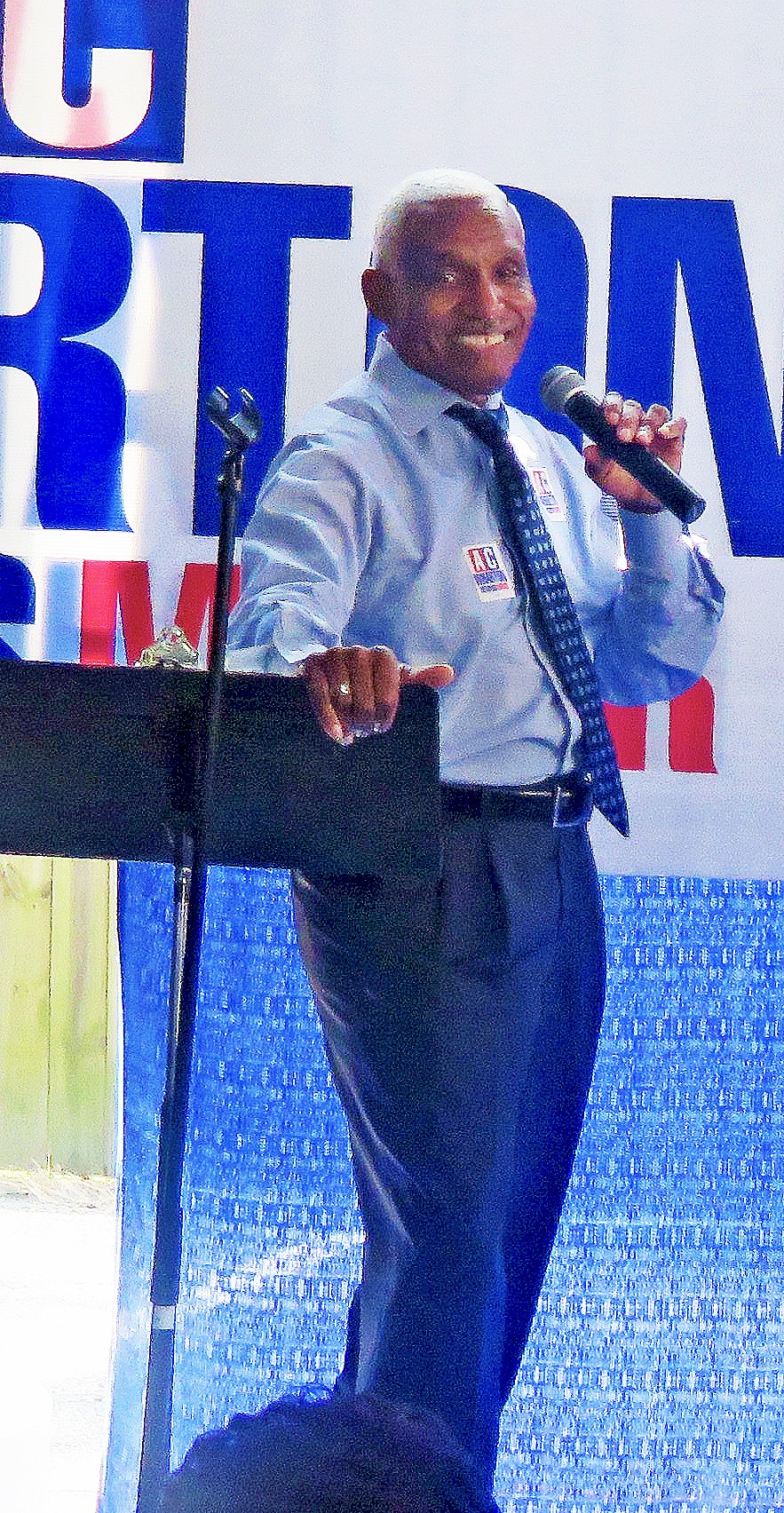 JB
JB